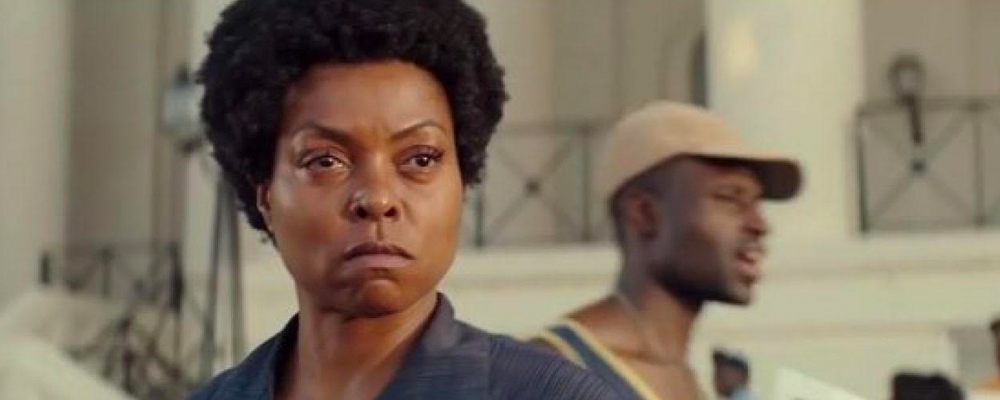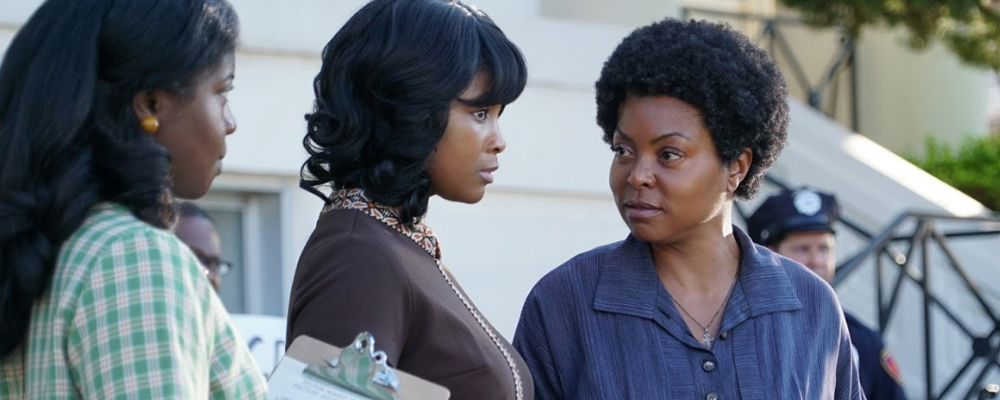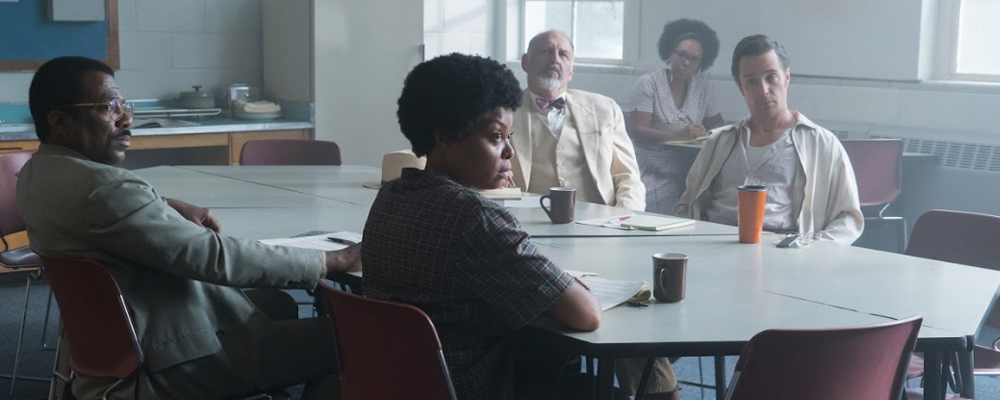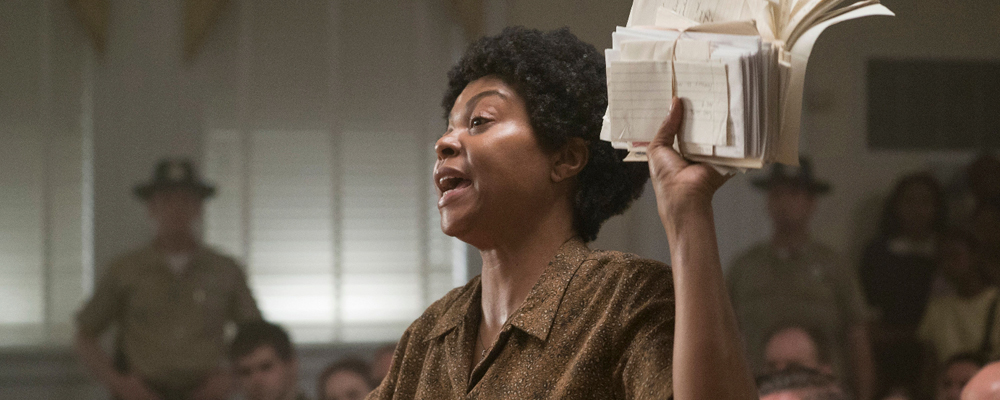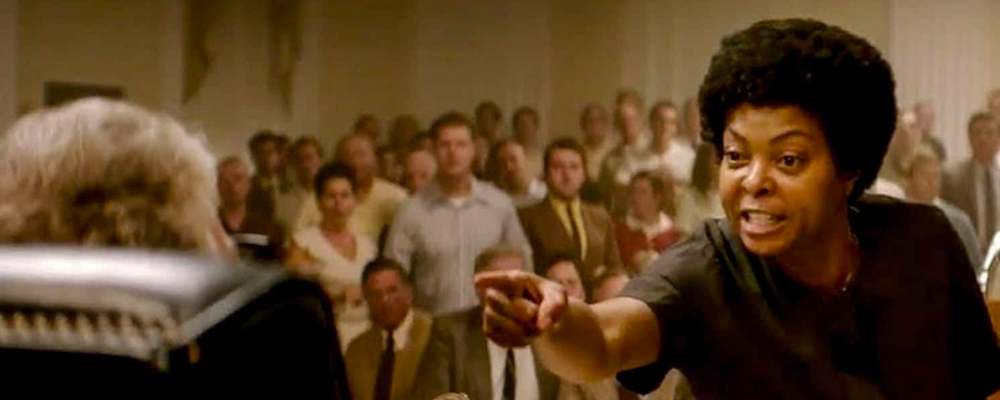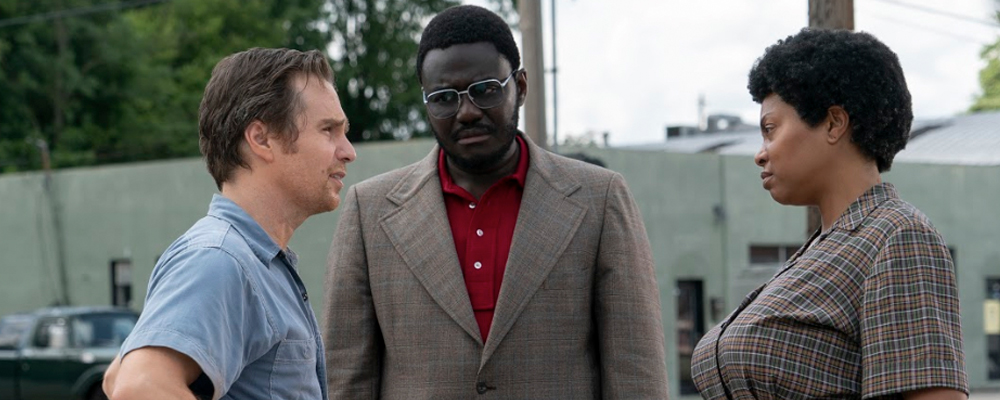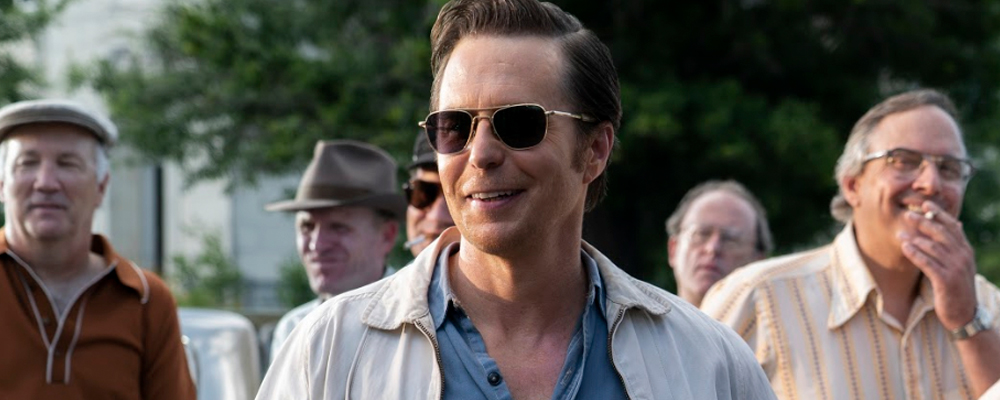‘The Best of Enemies’ Explores Race and Class in the Desegregation Era
Sandra Miska
The true story of the relationship between civil rights activist Ann Atwater (Taraji P. Henson) and Ku Klux Klan leader C.P. Ellis (Sam Rockwell) is the basis for “The Best of Enemies,” an inspiring drama detailing the path to school desegregation in a North Carolina town. Director Robin Bissell, who adapted the screenplay from the book “The Best of Enemies: Race and Redemption in the New South” by Osha Gray Davidson, presents a riveting character-driven drama that brings to life two people everyone should know about, Ellis and Atwater, both compelling figures that need no embellishments on the silver screen, something to which video and audio clips of them included in the film can attest.
In 1971 Durham, North Carolina, Ann and C.P. are introduced as being complete opposites, politically, at least. She works tirelessly for the African-Americans in her community, and in the opening scene she is shown passionately fighting against laws that enable slumlords. After the white male politician to whom she is speaking takes a phone call, she rips the receiver out of his hand, an example of the tactics that have earned her the nickname “Rough House Annie.” While local politico Carvie Oldham (Bruce McGill) make attempts to patronize her, he is covertly being chummy with local racists to preserve the status quo. C.P. is one such racist. Like Ann, he has a flare for the dramatic, giving impassioned speeches about white supremacy and the like. While C.P. is a hit with the Klan, he is less successful when it comes to business, as his gas station is barely staying afloat, and it doesn’t help that he refuses to serve people of color. His wife Mary (Anne Heche) disagrees with most of her husbands racist dogma, although she seems resigned to the way things are.
After a fire damages a black school attended by Ann’s daughter, she leads the charge in the fight to allow African-American children to be educated alongside white children. She, of course, receives pushback from the city council, and in the end, an outsider, Bill Riddick (Babou Ceesay), an African-American specialist from Raleigh, is called into to facilitate a charrette, a fascinating ordeal in which different people are thrown together to discuss the issues in the days leading up to making a major decision, in this case, the vote to approve desegregation. Riddick, of course, selects Ann as one of the leaders, but in a surprise twist, he reaches out to C.P. to work alongside her. Predictably, there’s tension from both sides.
While “The Best of Enemies” sheds light on an interesting part of America’s past, its aim isn’t to give a history lesson; rather, it focuses on its characters, exploring the motivations of those involved in the desegregation movement, which aren’t always what one would guess. What makes the film riveting is the different perspective that are presented. The line of division aren’t so “black and white,” as Ann takes issue with Riddick and other “Uncle Toms” who employ more moderate tactics in the fight for equality. C.P., meanwhile, becomes irked by the “lily-white liberals” participating in the charrette. Local white hardware store owner Lee Trombley ( John Gallagher Jr.) offers a unique perspective that counters C.P.’s, as his experience in Vietnam shaped his views about race. The working-class C.P. also feels alienated by the more upper-class whites, leading him to make the first steps towards finding common ground with Ann. Eventually, guards are let down as everyone gets to know each other as people. In the end, “The Best of Enemies” offers timely lessons about the dangers of racism and the importance of compassion and understanding
Henson and Rockwell both give outstanding performances here, although Rockwell had the more difficult task of finding the humanity in a character who is loathsome in many ways. This is partly accomplished through his love for his family, particularly for his son Larry (Kevin Iannuci) who, like most people with Down Syndrome during this era, lives in a psychiatric hospital.
As outstanding as Rockwell and Henson are, “The Best of Enemies” certainly is not without its flaws. While much time is devoted to C.P.’s family life and his interactions with other white people, Bissell doesn’t show enough of Ann’s home life and daily struggles, not only hers but those of her African-American neighbors. Also missing is the depiction of how Klan activity directly harms people of color. The victim of the most brutal act of violence in the film is a white woman, targeted by the Klan for her interracial romance.
“The Best of Enemies” opens April 5 nationwide.

